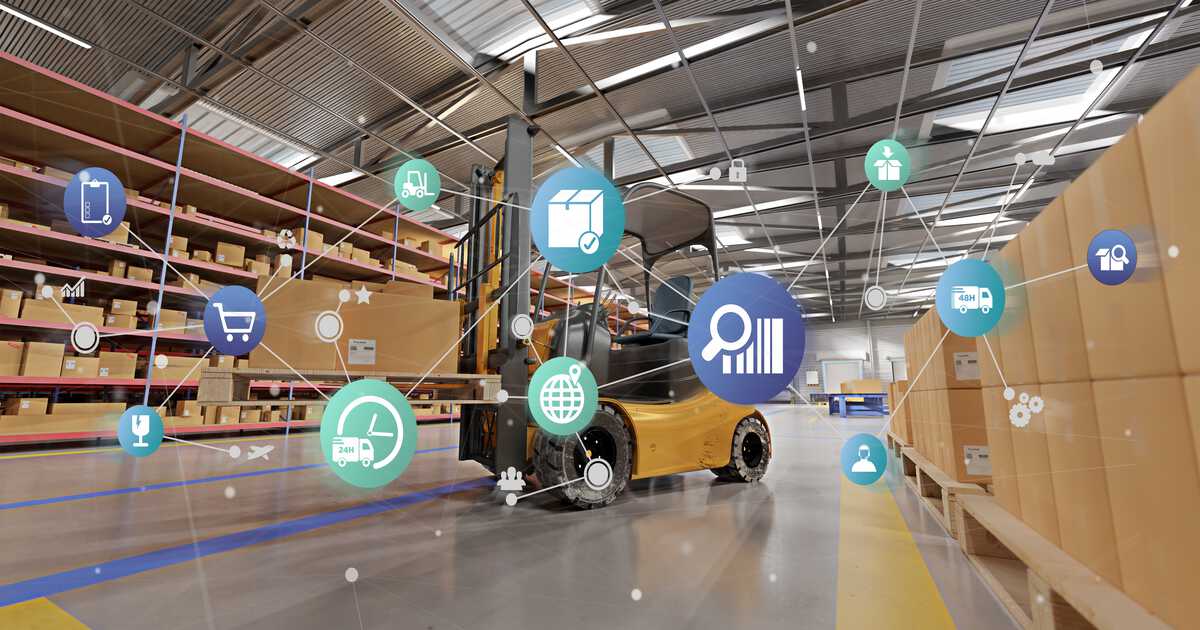
Logistics, Supply Chain, Transportation
Business Wire | February 05, 2024
AIT Worldwide Logistics, one of the world’s leaders in global supply chain solutions, has acquired Global Transport Solutions Group (GTS), a prominent international freight forwarder specializing in time-critical marine spare parts logistics.
Headquartered in the Netherlands, GTS and its more than 600 teammates across 16 locations in Asia, Europe, the Middle East and North America, serve over 2,000 ports around the world. The GTS network also includes nine consolidation hubs totaling more than 45,000 square meters of warehouse space.
AIT Chairman and Chief Executive Officer, Vaughn Moore, said, “I’d like to welcome our new GTS teammates to the global AIT network. This is the largest acquisition in our company’s history and GTS’ marine spare parts business is an excellent complement to AIT’s time-critical supply chain solutions.”
The company’s business is divided into two sub-brands: Marinetrans (founded in 1991), excelling in “door-to-deck” spare parts logistics for ship owners and managers, and Best Global Logistics (founded in 2007), providing time-critical solutions and general forwarding for other industries, including life sciences shippers.
According to AIT’s Chief Business Officer, Greg Weigel, the acquisition provides the company with new geographic presence in Greece, Japan and the Nordic region while adding significant capacity and subject matter expertise to existing AIT networks in China, the Netherlands and Singapore. The deal also provides a strong foundation to expand GTS’ world-class marine spare parts solutions via AIT’s expansive global freight network.
“The acquisition of GTS creates an incredible portfolio of solutions serving the maritime industry with delivery of time-critical spare parts across all geographies. This is a perfect complement to AIT’s vertical strategies focused on expedited mission-critical services like our Critical Solutions Group, government and AOG team, and Life Sciences Division,” Weigel said. “We plan to rapidly invest and expand GTS’ North American operations by capitalizing on AIT’s robust salesforce in the United States and offering maritime customers a world-class spare parts logistics solution in every port.”
AIT President and Chief Operating Officer, Keith Tholan, noted that the GTS core values – customer first, operational excellence, and partnership and collaboration – closely mirror AIT’s core values.
“We are delighted to welcome GTS teammates to AIT,” Tholan said. “Their deep marine logistics expertise and three decades of proven on-time performance in a very demanding segment will complement the diverse solutions we offer across our vertical sector strategy. We also expect our best-in-class global air freight procurement will instantly benefit their time-critical operations.”
According to GTS co-CEO John Burgstra, the acquisition is an opportunity for GTS to further expand their worldwide operations.
“We aim to provide our clients an unrivaled experience when it comes to global visibility, transparency and on-time performance, fully unburdening them of the required logistical handling of their vessels’ spare parts,” he said. “We are excited about becoming part of a larger group and the global development opportunities this acquisition will provide for our teammates.”
“Because of the highly fragmented and international nature of our clients’ requirements, they need a trusted partner with a vetted and effective global network,” added GTS co-CEO Vegard Prytz. “GTS will gain enormous benefits from leveraging the global AIT infrastructure, creating an even more integrated and seamless solution for clients around the world.”
Read More

Operations, Supply Chain, Transportation
PR Newswire | February 02, 2024
Canadian Pacific Kansas City (CPKC) today announced its membership in the RailPulse Coalition.
RailPulse, founded by a dynamic consortium of forward-thinking railcar owners, is working to develop, broaden and accelerate the use of GPS and other telematics technologies on railcars that increase safety, efficiency, and visibility across North America's freight rail industry.
CPKC becomes the third Class I railroad and 10th member of the coalition, joining Bunge North America, GATX, Genesee & Wyoming Inc., Norfolk Southern Corporation, Railroad Development Corporation, The Greenbrier Companies, TrinityRail, Union Pacific Railroad, and Watco Companies LLC.
"We are pleased to be a part of RailPulse and to contribute to accelerating adoption of railcar telemetry in North America," said John Brooks, CPKC Executive Vice President and Chief Marketing Officer. "This collaboration aligns with our commitment to innovation and will play an important role in modernizing our customer experience and provide benefits to the entire supply chain by advancing safety and improving operations."
The key objectives of RailPulse include:
Industry Wide Telematics Infrastructure: The initiative facilitates collaboration among industry players by creating a secure, trusted, standardized, and vendor neutral railcar telematics infrastructure that spans the entire North American freight rail industry.
Data-Driven Transformation: By building an information infrastructure that harnesses data from GPS and railcar-mounted sensors and prioritizing data standardization and storage in the cloud, RailPulse focuses on delivering actionable insights enabling enhance service levels, visibility, safety, sustainability, and productivity.
Enhanced Service through Visibility: Through RailPulse, the integration of telematic sensors on railcars enables the generation of valuable data, empowering shippers with real-time visibility of railcar and goods movements to make informed decisions and optimize their operations.
"We welcome CPKC to the RailPulse Coalition. Together, we will drive transformative change in the rail sector by combining our strengths and fostering a culture of innovation," said David Shannon, General Manager of RailPulse. "This partnership underscores our commitment to shaping the future of rail transportation."
Response from RailPulse Members:
"The Board of RailPulse is very excited to welcome CPKC," said Mike McClellan, RailPulse Board Chair and Sr. VP &Chief Strategy Officer at Norfolk Southern. "CPKC brings a breadth of railroading knowledge to the table, and the insights that CPKC will be able to contribute from operating in 3 countries will be invaluable as we drive RailPulse to serve all of North America."
Forward looking information
This news release contains certain forward-looking information and forward-looking statements (collectively, "forward-looking information") within the meaning of applicable securities laws in both the U.S. and Canada. Forward-looking information includes, but is not limited to, statements concerning expectations, beliefs, plans, goals, objectives, assumptions and statements about possible future events, conditions, and results of operations or performance. Forward-looking information may contain statements with words or headings such as "financial expectations", "key assumptions", "will", "anticipate", "believe", "expect", "plan", "should", "commit", "outlook", "guidance" or similar words suggesting future outcomes.
This news release contains forward-looking information relating, but not limited, to statements about future technology and the potential for telematics technologies to increase safety, efficiency, and visibility across North America's freight rail industry and CPKC's expected benefits from such future technology.
The forward-looking information contained in this news release is based on current expectations, estimates, projections, and assumptions, having regard to CPKC's experience and its perception of historical trends.
Forward-looking information involves many inherent risks and uncertainties that could cause actual results to differ materially from the forward-looking information, including but not limited to the factors that are detailed from time to time in reports filed by CPKC with securities regulators in Canada and with the U.S. Securities and Exchange Commission (SEC) in the United States.
Reference should be made to "Item 1A - Risk Factors" and "Item 7 - Management's Discussion and Analysis of Financial Condition and Results of Operations - Forward-Looking Statements" in CPKC's annual and interim reports on Form 10-K and 10-Q. Any forward-looking information contained in this news release is made as of the date hereof. Except as required by law, CPKC undertakes no obligation to update publicly or otherwise revise any forward-looking information, or the foregoing assumptions and risks affecting such forward-looking information, whether as a result of new information, future events or otherwise.
Read More

Operations, Warehousing and Distribution
PR Newswire | January 26, 2024
Turbo Wholesale Tires, and two-time Stanley Cup Champions, the LA Kings have announced a powerful brand partnership. As part of the multi-year agreement, brokered by AEG Global Partnerships, Lexani Performance Tires will become an official partner of the LA Kings, reaching millions of passionate sports fans.
As an official partner of the LA Kings, Lexani Performance Tires will have the unique opportunity to engage fans each week during the season as a presenting sponsor of the LA Kings "Game Preview," which will appear on the team's official social channels. Lexani Performance Tire will also benefit from in-arena signage via dasher boards and scoreboard branding during all LA Kings home games at Crypto.com Arena.
"We are proud to partner with the LA Kings and their global fanbase," said Phillip Kane, CEO of Turbo Wholesale Tires. "The Kings have a strong international brand and passionate following, we look forward to introducing their supporters to Lexani Performance Tire products."
Turbo Wholesale Tires has been a trusted tire supplier, leading the industry with a strong emphasis and understanding of the independent tire dealer. Turbo Wholesale Tires has evolved into a national and international supplier of its proprietary brands, Lexani Performance Tire, RBP Tires and Lionhart Tires. With nearly a million square feet of warehouse space nationwide, Turbo Wholesale Tires continues to exceed the needs of its tire customers.
"We are honored to be teaming up with Lexani Performance Tires," said Josh Veilleux, senior vice president, AEG Global Partnerships. "This collaboration not only brings a renowned tire supplier into our Kings family, but also introduces new ways for our fans to interact with its brand. We look forward to the positive impact this new partnership will bring to the team, Lexani Performance Tires and our incredible community of fans."
Read More